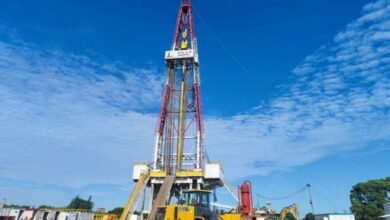Environmentally friendly proppant technology to improve hydraulic fracturing efficiency

By Katie Mazerov, contributing editor
Preferred Sands has launched a non-phenolic, resin-coating technology designed to be more environmentally friendly and efficient than conventional phenolic-based resins.
The technology, developed in collaboration with Dow Chemical Company, has been introduced in five US basins, including the Permian, Bakken, Mid-Continent, Utica and Eagle Ford, and in central Alberta, Canada, said Preferred Sands founder and CEO Michael O’Neill. The product has been used by more than 50 operators in more than 100 wells.
“This innovative process allows for coated sand to be produced in a manufacturing process that requires less energy while minimizing environmental impact compared to current phenolic resins,” he said. “It also provides the industry with an outstanding performance-to-cost value, enabling users to substantially improve operations while still curtailing expenses.”
The resin was developed to meet three critical needs of the oil and gas industry. “Not only does it perform well under a range of conditions and depths, it is also cost-effective and contributes to the sustainability of the drilling process,” Mr O’Neill continued.
Phenolic-based resins, which contain phenol and formaldehyde, can leach into well water or impact viscosity or cross-linking fracturing fluids used to place the proppant, he explained. In addition, partially cured phenolics often fully cure before the fracture has the opportunity to close and force particle-to-particle contact, thus are unable to create a strong consolidation or bond.
The non-phenolic products do not bond until they achieve closure stress, so they can hold all the bond strength ability to consolidate in the fracture, resulting in greater efficiency and reduced cost.
The technology marks two new product lines for the company, each addressing specific well conditions. The RCS Garnet is designed to control flowback in low-temperature reservoirs and includes a built-in ability to bond at low temperatures that does not require additional chemical treatment. “Phenolics came out of the foundry industry and were made for very hot temperatures, so they struggle to perform at lower temperatures,” Mr O’Neill explained.
Activators, which can be added to conventional phenolic resins to help them create a low-temperature bond, often cause the surface of the resin to deform under stress and so perform with mixed results. “Weakening the surface lowers the conductivity of the phenolic,” Mr O’Neill said. “The RCS Garnet doesn’t require an activator, so it holds its strength and conductivity and will bond all the way to down to below 80°F,” he said.

The RCS Pearl was developed to deliver better bond strength and flowback protection in hotter, deeper wells. Preferred Sands expects to introduce two additional products in September, Mr O’Neill said. The company also will open a second processing plant in May and has been approached by operators in several countries interested in using the non-phenolic resin technology. Germany and several other European countries don’t allow phenolics to be pumped into wells.
“The future of hydraulic fracturing is going to be about who delivers the most value for clients and the greatest technical efficiency, and the ability to innovate and create new products,” Mr O’Neill said. “For hydraulic fracturing to be sustainable for the long term and stand up to scrutiny, industry needs to continually look at improving all aspects of the process.”




